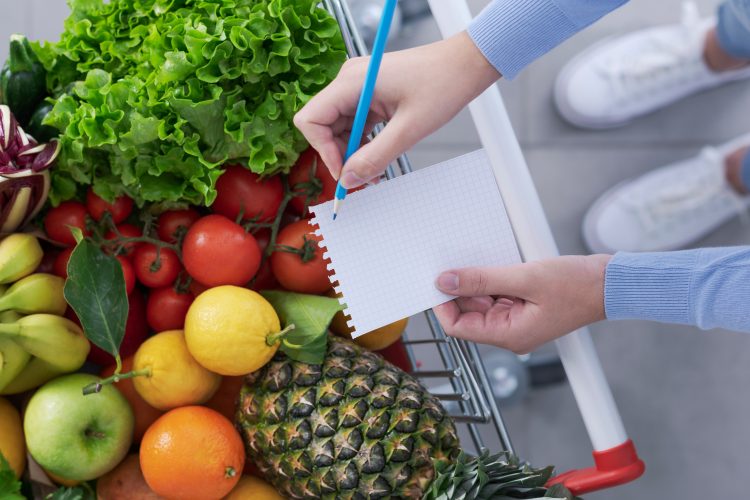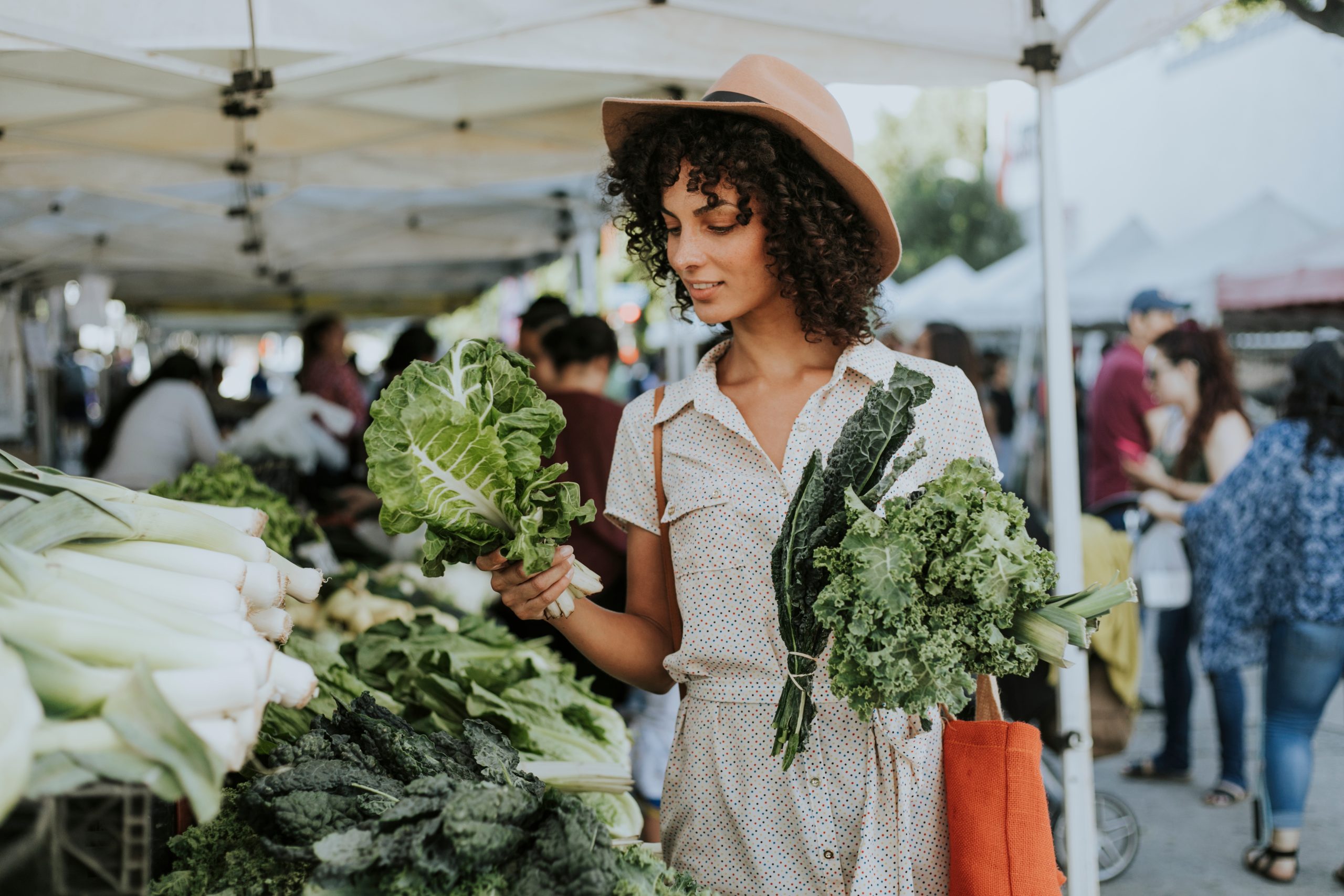Are Europeans altering their food shopping habits?
- Like
- Digg
- Del
- Tumblr
- VKontakte
- Buffer
- Love This
- Odnoklassniki
- Meneame
- Blogger
- Amazon
- Yahoo Mail
- Gmail
- AOL
- Newsvine
- HackerNews
- Evernote
- MySpace
- Mail.ru
- Viadeo
- Line
- Comments
- Yummly
- SMS
- Viber
- Telegram
- Subscribe
- Skype
- Facebook Messenger
- Kakao
- LiveJournal
- Yammer
- Edgar
- Fintel
- Mix
- Instapaper
- Copy Link
Posted: 11 January 2023 | Grace Galler | No comments yet
In a bid to tackle food price increases themselves, Klaus Grunert explains to New Food why consumers might be “reshuffling” their purchases to navigate food inflation and potential food shortages.


With the inflation rate for food in the European Union (EU) reaching a high in October 2022 of 17.26 percent, how are consumers in Europe altering their shopping habits to cope with price increases?
According to a study, 53 percent of European consumers are “strongly worried” about food shortages and have altered their spending to cope with food inflation.
Some of the key changes observed in the study include shoppers buying less or switching brands and making more mindful choices when it comes to food.
“The ongoing Russian war against Ukraine has brought into sharp focus just how fragile our food system can be,” said Dr Andy Zynga, CEO of EIT Food.
“We urgently need to scale and support innovation to address supply chain issues and ensure that we are producing enough affordable, nutritious food for all; however, we must do so sustainably, fairly and efficiently.”
Explaining to New Food that “people are reacting by reshuffling” their food shopping ways, Klaus Grunert, Professor at Department of Management at Aarhus University, expressed his view regarding the results of the ‘Changes in food behaviour in times of crisis’ study.
What was the inspiration behind the study?
Klaus Grunert (KG): We are in a period of disruptive events which have had an impact on consumer behaviour. We had the COVOD-19 pandemic and we now have the war in Ukraine and rising energy prices to contend with.
Researchers are interested in price rises and how this affects consumer behaviour regarding food. We are especially interested in other aspects such as climate change and sustainability, two things that most people agree account for changes in consumer behaviour.
Were the results of the study surprising or expected?
KG: Some aspects were not surprising. If prices go up, people react by reshuffling some of their demand, buying alternative options and generally becoming more price sensitive.
Some of the trends we saw two years ago as a reaction to COVID-19 are still there. For example, two years ago we found that people spent more time in the kitchen, were more creative when it came to home cooking and had more fun eating together with their families. That made sense because people were stuck at home because of the lockdowns.
It wasn’t self-evident that people would still have the desire to cook at home with family now, especially as people can dine in restaurants again. However, we found that it has receded a little bit, but not dramatically compared to pre-COVID 19.


According to Grunert, people started to get more creative with home cooking during the COVID-19 pandemic.
There is now more deliberation compared to two years ago. Consumers compare products more often, read more labels and make less unplanned purchases. They are pressured when it comes to food prices. Some people might assume that they’d have to stop taking aspects such as healthiness and sustainability into consideration but this doesn’t seem to have happened, in fact, the demand for these products may have strengthened.
Do you think more people eating at home as a result of the pandemic will negatively impact the hospitality industry?
KG: My guess would be that there will be a rebound effect there in the same way that the travel industry has a rebound effect. People have unmet demands and have been returned to eating in restaurants, so much so that some suppliers were unprepared for it. My impression is that the hospitality industry is benefitting from people coming back after a period of being forced to eat at home.
How have consumers reacted to the threat of potential of food shortages?
KG: We have measured whether people are concerned that Ukraine war has an effect on food shortages and the results were not surprising. There has been so much media discussion about grain shortages and how there have been concerns regarding grain from experts. Of course, some people also have anecdotal evidence that there some things might have been in short supply.
Ukraine crisis will bring turmoil to wheat and sunflower oil supply chains
I know that people are concerned and that’s what the data shows but we don’t know to what extent people have actually been confronted with food shortages. People have said that they have been confronted with price increases so they have started buying from other places and being more thrifty when it comes to food.
I expect that people will cope with pressures by subsidising some of the goods that they use, which will have a follow-on impact on the type of meals they eat.
Do you think consumers will start to swap out previously popular purchases such as red meat and dairy for alternatives?
KG: Yes. It’s interesting because it’s in line with another development that we saw two years ago – an increased interest in vegetables. Many people are also talking about to consumers making the switch to a plant-based diet but don’t know how strong this trend will be in the coming year or so.


Grunert predicts that there will be increased consumer interest in vegetables.
Why do companies need to produce sustainable products in today’s world?
KG: Until now, sustainable options have been niche products, caring for a segment that is willing to pay more for these products. But we do need to see sustainability corresponding with mainstream products so that a variety of options incorporate aspects of sustainability.
Companies need to produce sustainable products that cater for the mass market because not all aspects of sustainability need a huge extra cost.
How do you see the next year transpiring when it comes to consumer concerns regarding food shortages?
KG: It depends on what happens. Right now, we are in a period where inflation has been going down in Europe. We have no serious food shortages at the moment. Therefore, concerns may be falling and people can start to make choices that are related to their basic needs and goals in relation to food.
If we have disruptions to the food supply chain in 2023, of course, this will change. When people react to crisis, there are typically two types of reactions. Firstly we have trends that are being strengthened that will remain and then we have specific responses to the crisis, where people deviate from ‘normal behaviour’ but this usually recirculates within a year or so.
Do you think governing bodies across Europe should clarify to consumers that there aren’t pertinent food shortages at the moment?
KG: Yes, absolutely. I think that is would be an important step. I think it would be a really good if we had some type of information coming from authorities for consumer piece of mind.
With more than ticking all items off their shopping list to think about, consumers are likely to be stepping into supermarkets in 2023 and keeping food inflation, potential shortages and the cost-of-living crisis in mind. Should more consumers choose to cook at home, food sales could increase but the items they reach for may differ from the ones they bought during the height of the COVID-19 pandemic. Will they rely on own brands, or seek sustainable substitutes in the coming months? Only time will tell.
Biography


Klaus G. Grunert is Professor of Marketing at Aarhus University, and is the founder of the MAPP Research Center. He is a consumer behaviour researcher with an interdisciplinary orientation. Most of his research is on consumer behavour with regard to food and drink with a background in the disciplines of marketing, agricultural economics and food science. He has dealt with questions on the relationships of consumer decision-making, consumer values and attitudes, consumer experience and consumer lifestyle. His research has equal focus on scientific excellence and practical applicability and he have extensively cooperated with both industry and public policy institutions. He believes in interdisciplinarity and has cooperated widely with researchers in other social sciences as well as in the technological and natural sciences.
Related topics
COVID-19, Food Security, Research & development, retail, Supermarket, Supply chain, Sustainability, The consumer, Trade & Economy, World Food









